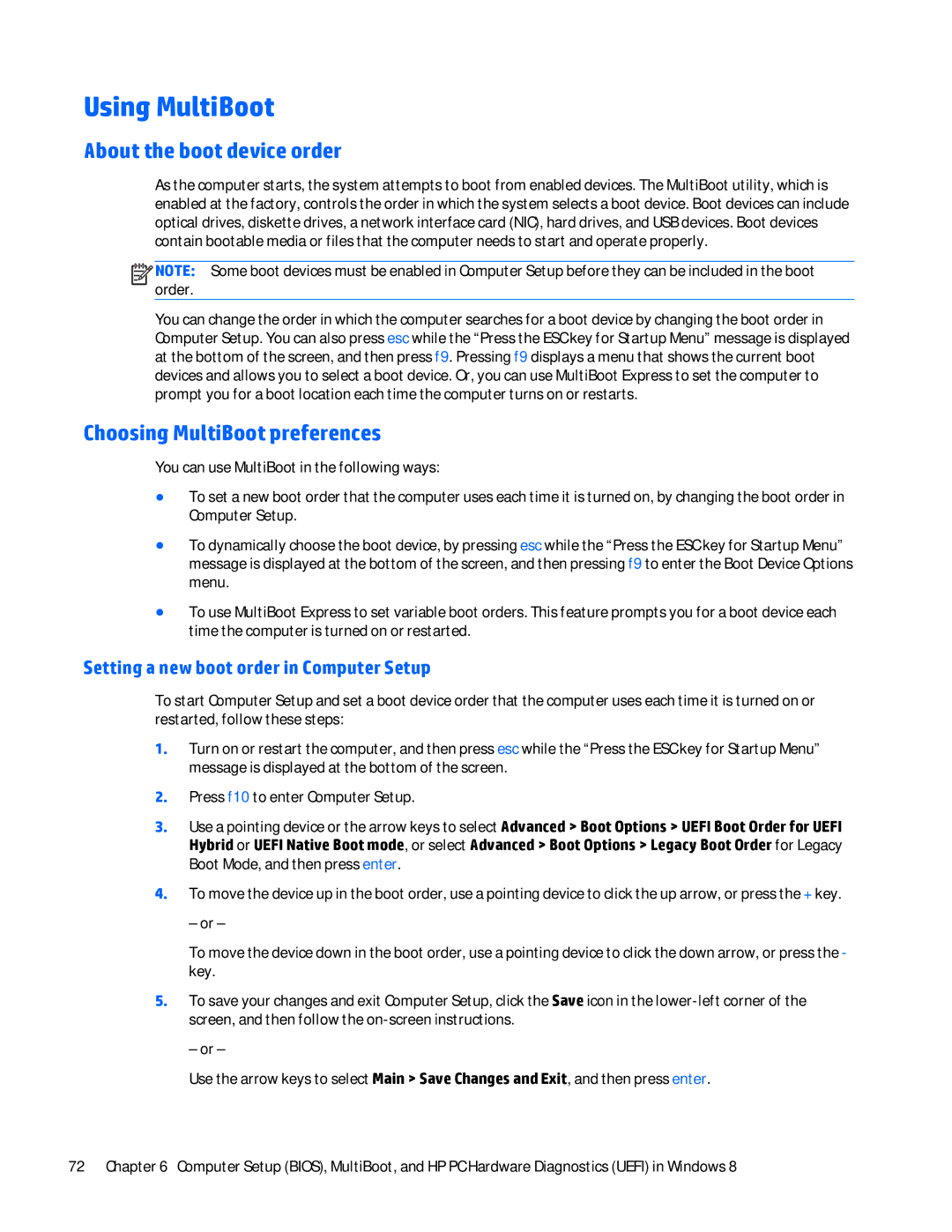Using MultiBoot
About the boot device order
As the computer starts, the system attempts to boot from enabled devices. The MultiBoot utility, which is enabled at the factory, controls the order in which the system selects a boot device. Boot devices can include optical drives, diskette drives, a network interface card (NIC), hard drives, and USB devices. Boot devices contain bootable media or files that the computer needs to start and operate properly.
![]()
![]()
![]()
![]() NOTE: Some boot devices must be enabled in Computer Setup before they can be included in the boot order.
NOTE: Some boot devices must be enabled in Computer Setup before they can be included in the boot order.
You can change the order in which the computer searches for a boot device by changing the boot order in Computer Setup. You can also press esc while the “Press the ESC key for Startup Menu” message is displayed at the bottom of the screen, and then press f9. Pressing f9 displays a menu that shows the current boot devices and allows you to select a boot device. Or, you can use MultiBoot Express to set the computer to prompt you for a boot location each time the computer turns on or restarts.
Choosing MultiBoot preferences
You can use MultiBoot in the following ways:
●To set a new boot order that the computer uses each time it is turned on, by changing the boot order in Computer Setup.
●To dynamically choose the boot device, by pressing esc while the “Press the ESC key for Startup Menu” message is displayed at the bottom of the screen, and then pressing f9 to enter the Boot Device Options menu.
●To use MultiBoot Express to set variable boot orders. This feature prompts you for a boot device each time the computer is turned on or restarted.
Setting a new boot order in Computer Setup
To start Computer Setup and set a boot device order that the computer uses each time it is turned on or restarted, follow these steps:
1.Turn on or restart the computer, and then press esc while the “Press the ESC key for Startup Menu” message is displayed at the bottom of the screen.
2.Press f10 to enter Computer Setup.
3.Use a pointing device or the arrow keys to select Advanced > Boot Options > UEFI Boot Order for UEFI Hybrid or UEFI Native Boot mode, or select Advanced > Boot Options > Legacy Boot Order for Legacy Boot Mode, and then press enter.
4.To move the device up in the boot order, use a pointing device to click the up arrow, or press the + key.
– or –
To move the device down in the boot order, use a pointing device to click the down arrow, or press the - key.
5.To save your changes and exit Computer Setup, click the Save icon in the
– or –
Use the arrow keys to select Main > Save Changes and Exit, and then press enter.
72 Chapter 6 Computer Setup (BIOS), MultiBoot, and HP PC Hardware Diagnostics (UEFI) in Windows 8
